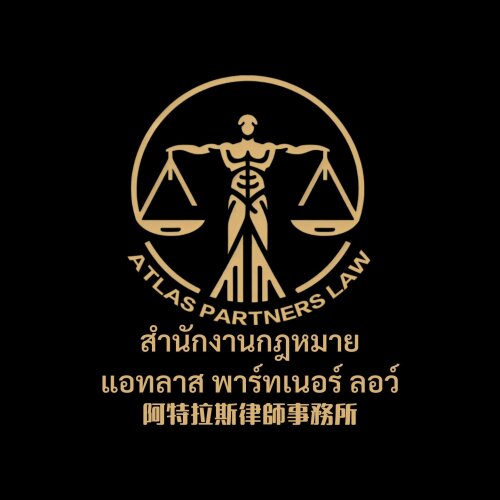About Restructuring & Insolvency Law in Chiang Mai, Thailand
Restructuring and insolvency law in Chiang Mai is part of Thailand's broader legal framework designed to help companies and individuals address financial distress. Whether due to unforeseen business failures, poor economic conditions, or other financial challenges, restructuring and insolvency laws offer pathways for businesses to reorganize their debts or, if necessary, proceed through formal insolvency processes. Chiang Mai, as a growing regional economic hub, has seen increasing cases where both local and foreign businesses require guidance in these areas. The law aims to balance the rights of creditors and debtors, preserve employment, and maintain economic stability.
Why You May Need a Lawyer
There are many reasons someone in Chiang Mai might seek legal advice in restructuring and insolvency cases. If your business faces overwhelming debt, a lawyer can help assess whether restructuring is feasible or if insolvency proceedings are more suitable. Sometimes creditors may need assistance to recover debts from insolvent entities, or partners in a business might require guidance if asset liquidation becomes necessary. A lawyer can also assist when negotiating with banks or other creditors, protect your legal rights, clarify your options, and navigate complex litigation in the local court system. Having professional legal help is especially critical for cross-border cases, multi-party disputes, or when dealing with Thai language documentation and local authorities.
Local Laws Overview
Thai restructuring and insolvency law is mainly governed by the Bankruptcy Act and related regulations. In Chiang Mai, the legal process typically involves several stages, including application for business rehabilitation, appointment of a planner, debt restructuring negotiations, and, if unsuccessful, court-managed insolvency proceedings. Bankruptcy and insolvency cases are handled by specialized courts in Thailand, with the Central Bankruptcy Court in Bangkok overseeing major cases, while regional cases may be heard in provincial courts like those in Chiang Mai. The local process emphasizes creditor meetings, court approval, and strict timelines. Foreigners doing business in Chiang Mai should note that the process can be different from those in Western countries, so understanding local nuances and having legal advice is vital.
Frequently Asked Questions
What is business restructuring?
Business restructuring is the process of reorganizing a company's structure, operations, or finances, often to improve cash flow and pay back creditors without declaring bankruptcy or liquidating assets.
What is insolvency in Thailand?
Insolvency generally means an individual or company cannot meet payment obligations as they become due. In Thailand, insolvency can lead to formal bankruptcy proceedings or rehabilitation, depending on the case.
Can foreign-owned businesses access Thai restructuring and insolvency processes in Chiang Mai?
Yes. Foreign-owned businesses operating in Chiang Mai can use Thai restructuring and insolvency procedures, but specific documentation and legal requirements must be followed, often requiring professional legal assistance.
How long does the restructuring process take?
The time frame varies based on the complexity of the case, number of creditors, and court schedules. A straightforward restructuring may take several months, but cases with disputes or high debt levels can take years.
Will insolvency erase all my debts?
Not necessarily. While insolvency may discharge many debts, some obligations may remain, depending on the nature of the debt and court decisions. Legal advice can help clarify what debts may be discharged.
What assets can be protected during insolvency?
Thai law provides rules for protecting certain personal or business assets, but much depends on the specifics of the case and claims by creditors. Legal advice helps identify which assets may be protected.
What happens to employees during restructuring or insolvency?
Employment contracts may be maintained or terminated, but Thai law requires employers to pay outstanding wages, benefits, and compensation. Employees are generally prioritized over other creditors for payments.
Do all restructurings require court proceedings?
No. Some restructurings can be completed privately through negotiations with creditors. However, formal court-approved procedures may offer legal protections and enforceability that private agreements lack.
Can individuals file for bankruptcy or restructuring?
Yes. Individuals in Chiang Mai can file for bankruptcy under Thai law. For businesses, both juristic entities and individuals may file for rehabilitation or insolvency, depending on their circumstances.
Should I contact a lawyer at the first sign of financial trouble?
It is highly recommended. Early legal advice can help you explore all available options, avoid common pitfalls, and possibly prevent insolvency or bankruptcy altogether.
Additional Resources
If you need further information or support regarding restructuring and insolvency in Chiang Mai, consider reaching out to:
- The Central Bankruptcy Court in Bangkok
- Chiang Mai Provincial Court
- The Thai Ministry of Justice
- The Office of the Official Receiver
- Thai Chamber of Commerce and Board of Trade
- Local legal aid foundations or law firms with restructuring expertise
These organizations can provide updates on current laws, application procedures, and initial consultations.
Next Steps
If you or your business in Chiang Mai are facing financial difficulties, the following steps are recommended:
- Assess your financial situation objectively
- Gather all relevant financial documents and records
- Consult with a qualified lawyer specializing in restructuring and insolvency
- Discuss the full range of legal options available, including private negotiation and formal restructuring
- Understand all risks, benefits, and legal obligations before making decisions
- Be proactive and transparent with creditors to maintain trust during negotiations
Taking action early with professional legal advice can make a significant difference in the outcomes for both business operators and individuals in Chiang Mai.
Lawzana helps you find the best lawyers and law firms in Chiang Mai through a curated and pre-screened list of qualified legal professionals. Our platform offers rankings and detailed profiles of attorneys and law firms, allowing you to compare based on practice areas, including Restructuring & Insolvency, experience, and client feedback.
Each profile includes a description of the firm's areas of practice, client reviews, team members and partners, year of establishment, spoken languages, office locations, contact information, social media presence, and any published articles or resources. Most firms on our platform speak English and are experienced in both local and international legal matters.
Get a quote from top-rated law firms in Chiang Mai, Thailand — quickly, securely, and without unnecessary hassle.
Disclaimer:
The information provided on this page is for general informational purposes only and does not constitute legal advice. While we strive to ensure the accuracy and relevance of the content, legal information may change over time, and interpretations of the law can vary. You should always consult with a qualified legal professional for advice specific to your situation.
We disclaim all liability for actions taken or not taken based on the content of this page. If you believe any information is incorrect or outdated, please contact us, and we will review and update it where appropriate.















